Edward W. Said
Peace and Its Discontents
An internationally renowned literary and cultural critic, Edward W. Said is University Professor at Columbia University. He is the author of twenty books, including Orientalism, which was nominated for the National Book Critics Circle Award, and Culture and Imperialism.
BOOKS BY Edward W. Said
Joseph Conrad and the Fiction of Autobiography
Beginnings: Intention and Method
Orientalism
The Question of Palestine
Literature and Society (editor)
Covering Islam
The World, the Text, and the Critic
After the Last Sky (with Jean Mohr)
Blaming the Victims
Musical Elaborations
Culture and Imperialism
The Politics of Dispossession
Representations of the Intellectual
Peace and Its Discontents
The Pen and the Sword
Entre guerre et paix
Out of Place
The End of the Peace Process
A VINTAGE ORIGINAL, JANUARY 1996
FIRST EDITION
Copyright 1993, 1994, 1995 by Edward W. Said
Preface copyright 1995 by Christopher Hitchens
All rights reserved under International and Pan-American Copyright Conventions. Published in the United States by Vintage Books, a division of Random House, Inc., New York, and simultaneously in Canada by Random House of Canada Limited, Toronto. Originally published in Great Britain by Vintage, a division of Random House UK Limited, London, in 1995.
Grateful acknowledgment is made to the following for permission to reprint previously published material:
The Christian Science Publishing Society: Excerpt from the editorial The Gaza Bombings (The Christian Science Monitor, April 11, 1995), copyright 1995 by The Christian Science Publishing Society. Reprinted by permission from the Editorial Page of The Christian Science Monitor. All rights reserved.
David Grossman: Excerpt from article by David Grossman (Haaretz, April 4, 1995).
Reprinted by permission of David Grossman.
Haaretz: Excerpt from The Israeli Version of Peace by Meron Benbenisti (Haaretz, December 22, 1994). Reprinted by permission of Haaretz.
Sara Roy: Excerpt from article by Sara Roy (The Christian Science Monitor, April 12, 1995). Reprinted by permission of Sara Roy.
Library of Congress Cataloging-in-Publication Data
Said, Edward W.
Peace and its discontents : essays on Palestine in the Middle East peace process / by Edward W. Said : with a preface by Christopher Hitchens.1st ed.
p. cm.
A Vintage originalT.p. verso.
eISBN: 978-0-307-82961-0
1. Jewish-Arab relations1973- 2. Israel-Arab conflicts. 3. Israel. Treaties, etc.
Muna amat al-Ta
amat al-Ta rr al-Filas
rr al-Filas nyah, 1993 Sept. 13. I. Title.
nyah, 1993 Sept. 13. I. Title.
DS119.7.S3324 1996
956.04dc20 95-34226
v3.1
For Professor Israel Shahak, Champion of Peace and Justice
Acknowledgments
I would like to thank my assistant Dr. Zaineb Istrabadi for helping me so ably in the preparation of the original articles that were published from September 1993 till May 1995. I am also very grateful to Jihad al-Khazen of al-Hayat and Husni Guindi and Mona Anis of al-Ahram Weekly for their editorial support and cordiality: Ms. Anis worked with me on the Arabic version of these pieces, and to her skill and commitment I am most indebted. Some of these articles were published in The Nation, The London Review of Books, Le Monde diplomatique, and The Progressive, whose late editor Erwin Knoll was a man of principle and courage (his untimely death was a blow to journalistic standards of integrity and high seriousness). My London and New York editorsFrances Coady and Shelley Wangergave me the benefit of their insights, practiced eyes, and friendship; to them both I am extremely grateful.
Finally, a word about the form of the articles themselves. Although in many ways they overlap one another and reiterate themes and observations, I have edited them only to eliminate too insistent repetitions and very occasionally to clarify and bring up to date what I did not know at the time of writing. In any event these pieces were written above all else as eyewitness reports and commentaries to accompany (and to demystify) momentous developments whose purport was often misleadingly interpreted or deliberately falsified. They have been kept pretty much as they are so that the English and American reader can find in them a dissenting record of what took place for almost two years, from the historic handshake on the White House lawn in 1993 until, roughly speaking, its second anniversary.
Contents
Preface by Christopher Hitchens
.And they call it Peace.
If it were possible to make onejust oneliterary reform in the oppressive litany of clichs and received opinions that is delivered to us by modern journalistic discourse, my nomination for the reform would be this. No editor or headline writer or columnist or think-piece merchant should be allowed to employ the word moderate and the word reasonable as if they were synonymous or coterminous. Look at what happens in the absence of this reform. Even the noblest of wordsthe word rationalbecomes degraded by slothful association. Before too long it is the moderate and rational forces who are prevailing. Next it is the voices of reason which must be attended to if the moderates are to triumph. (We know who the moderates are, of course. They are the ones who know whats good for them. Anyway, they never fail to proclaim themselves and have, by now, earned title to a useless term of art. The feudal absolutists of Saudi Arabia are moderates because they listen to raison dtat. Oliver Norths Iranian business partners wereremember?moderates by definition because they were engaged in bidding for American high-tech weaponry. If this little essay were being written in French, the slight subliminal connection between reason and right would be enough in itself to convulse the most carapaced cynic with irrepressible mirth.)
Any fool can see how the trick is worked. This man is a critic of the peace process (two other words which well examine in a moment). He is therefore, by his own confession, no moderate. He may even be deaf to the voice of reason. And this, after all weve done for him.
And here is how moderation sounds in practice. We discover it right at home, feet up after a self-satisfied day, in its most secure and contented domicilethe front page of The New York Times. The date of the report is September 14, 1993. The occasion is the handshake between Messrs. Rabin and Arafat, encompassed by the burly arms and shoulders of President Clinton, on the White House lawn:
The jaded are awed. Even for a New Age Presidency, there were a lot of men in the audience crying. George Stephanopoulos, the Clinton aide, and Rahm Emanuel, the White House advisor who had helped arrange the logistics, were crying. So was the Hollywood contingentRon Silver and Richard Dreyfussalong with Leon Wieseltier, the literary editor of


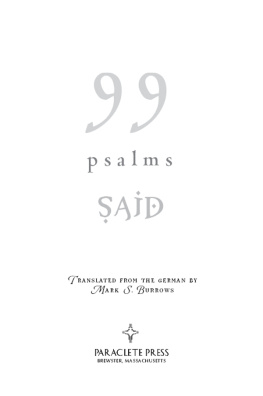
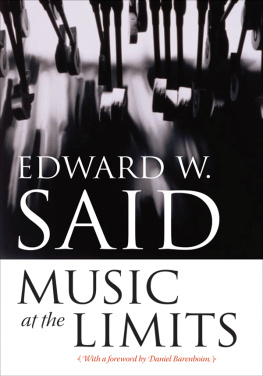
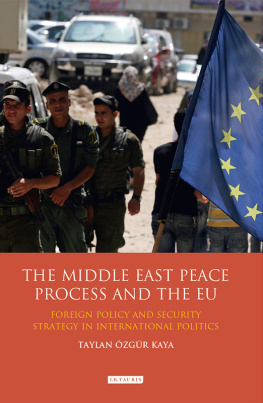
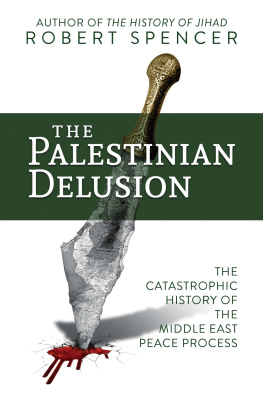
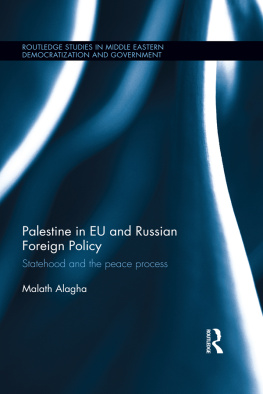

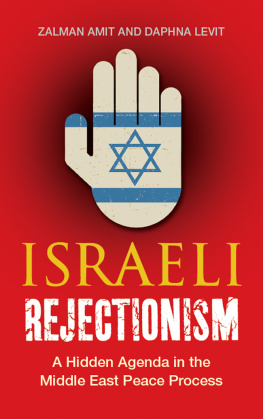
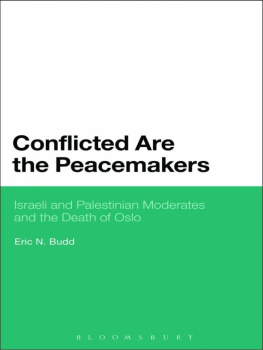
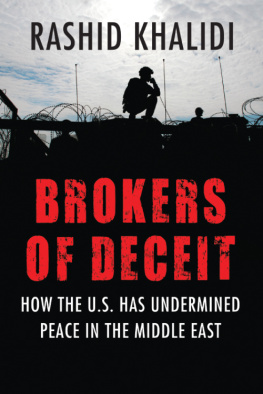
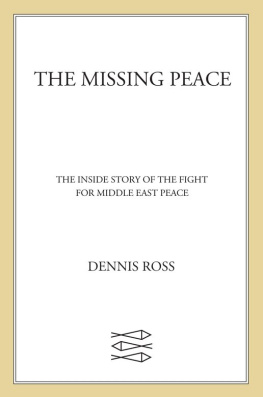
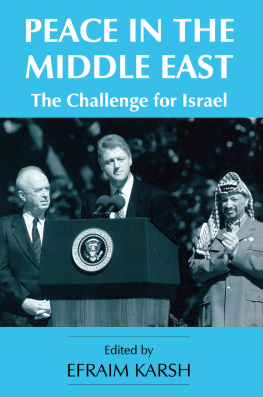
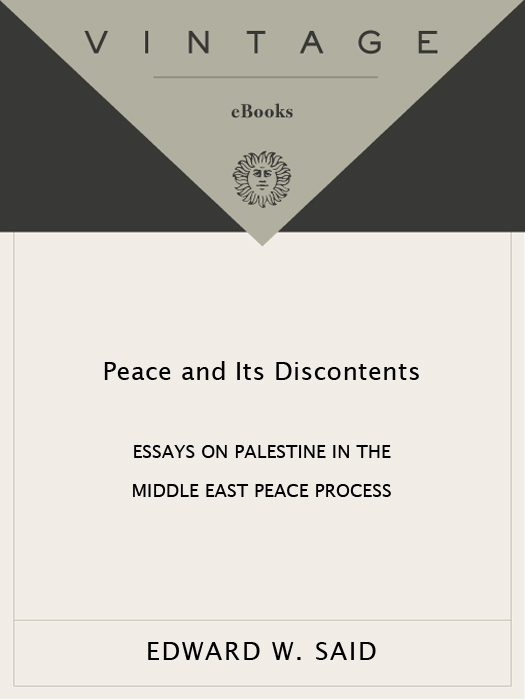
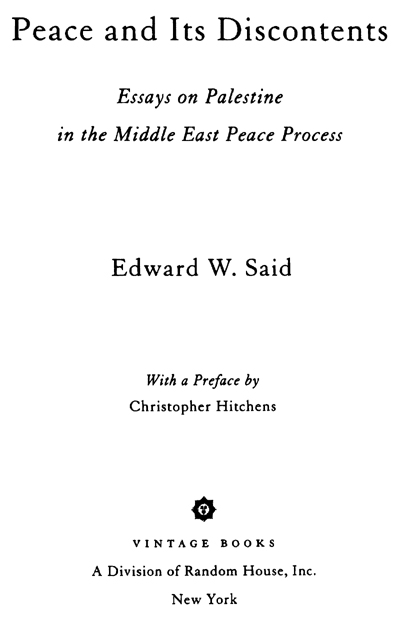
 amat al-Ta
amat al-Ta rr al-Filas
rr al-Filas nyah, 1993 Sept. 13. I. Title.
nyah, 1993 Sept. 13. I. Title.